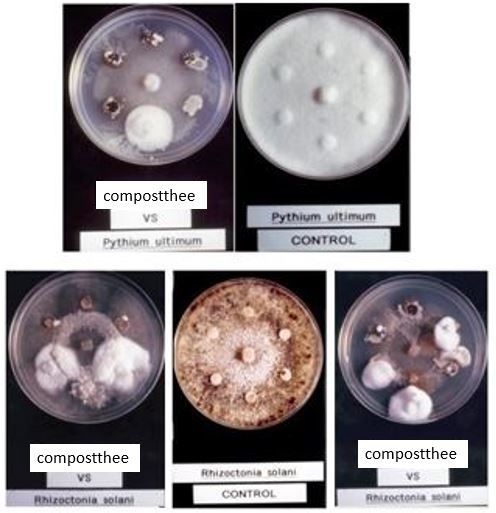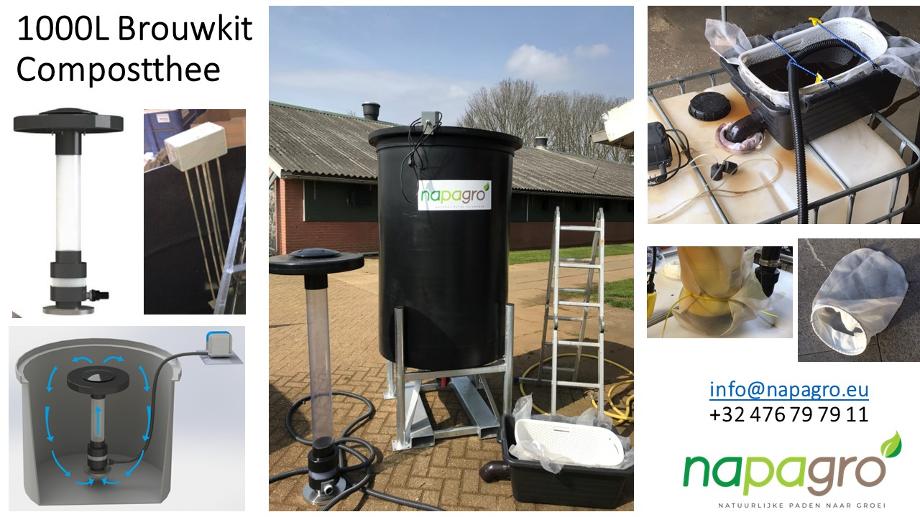Compostthee
release minirals, inhibit pathogens, improve soil structure
Compost tea is an extract of the microbiology present in humified compost. It is used to support the microbiological life of plants, both on the leaves and around the roots. Often compost tea is 'brewed' by placing compost in a container of water and aerating it. This process then takes approximately 24-48 hours. Napagro uses Oxydent's system that "extracts" microbiology instead of "brewing" it. As a result, a good extract is obtained after 8 hours, in which all minerals and biology come into suspension, ready for use.
Worm compost usually forms the basis of our recipe, because of the interesting substances in the 'worm poo'. In addition, a mix of food for the micro life, so that it can multiply quickly in the water of 20-25 ° C. At the request of the customer, the biology can be adjusted to more fungal dominance.
Functions
- Compost tea contributes to better disease resistance, both on the leaf and in the soil, by creating more competition.
- More diverse biology will also help to release minerals and trace elements and to make organic precast building blocks that the plant uses to e.g. to create immune proteins.
- Active soil biology also ensures a better soil structure: by separating adhesives that glue small soil particles together to form larger particles, resulting in a coarser structure. This allows air and water to circulate better.
Application in all crops: 50 to 200L per ha, with the field sprayer or via drip line.

In addition, the effect of 4 x 150L compost tea in durum wheat, sprayed in the period April, May and June. The soil is clearly smoother and crumbly.
We see the same effect in people who use compost tea via drip line in open-ground strawberry cultivation.
We saw maize twice treated with compost tea in the hot summer of 2020 after the heat, while the untreated strips did not recover.
